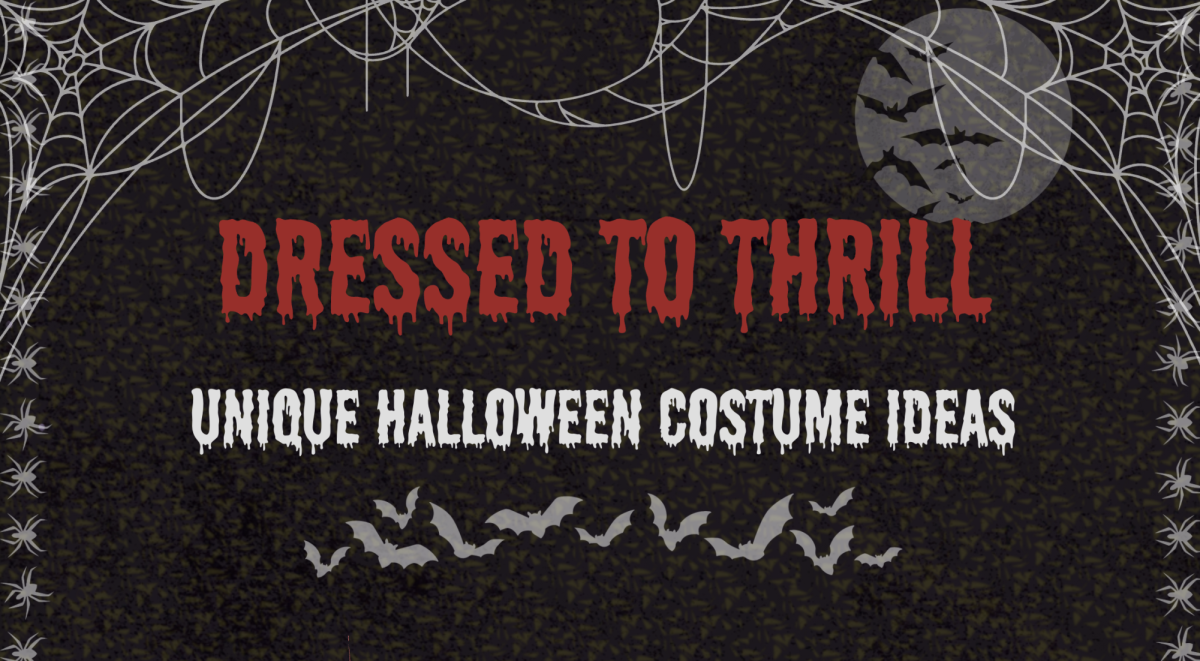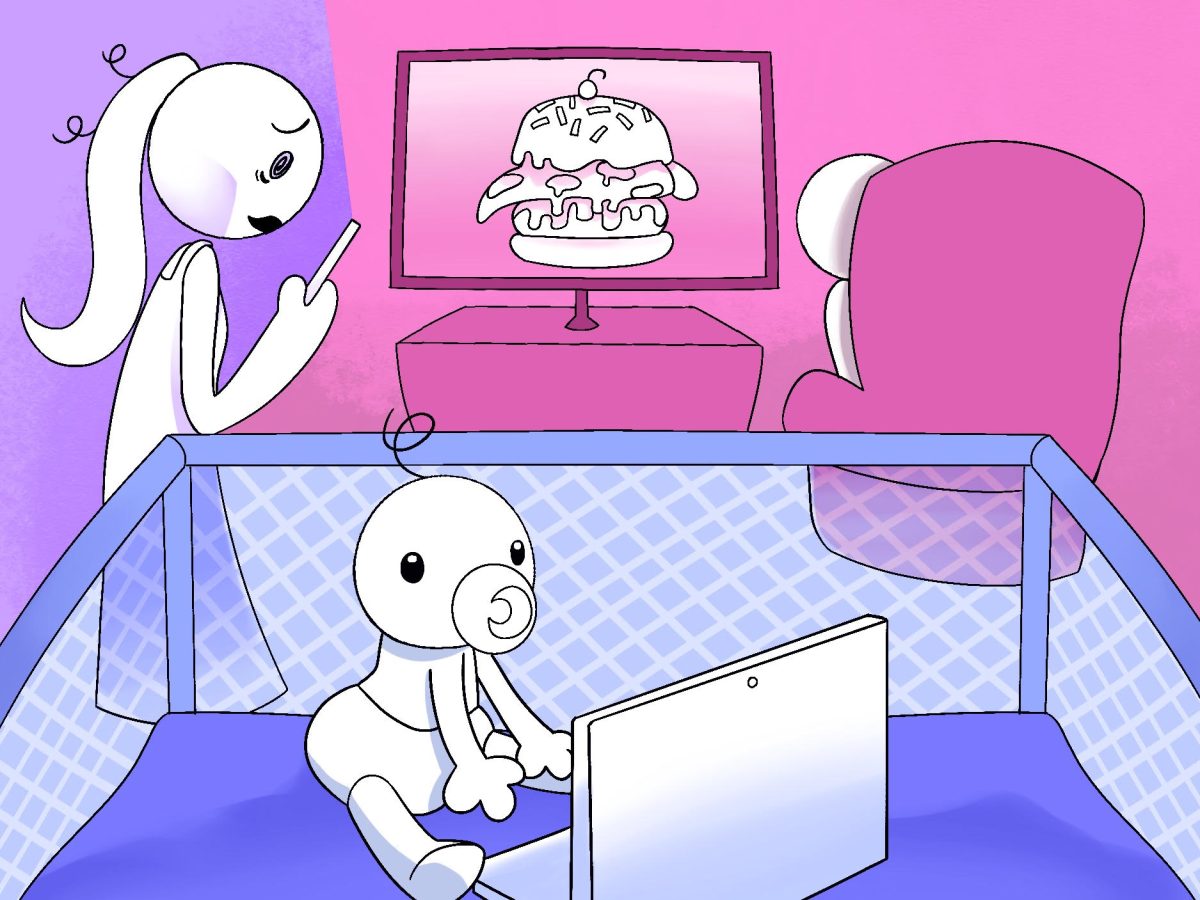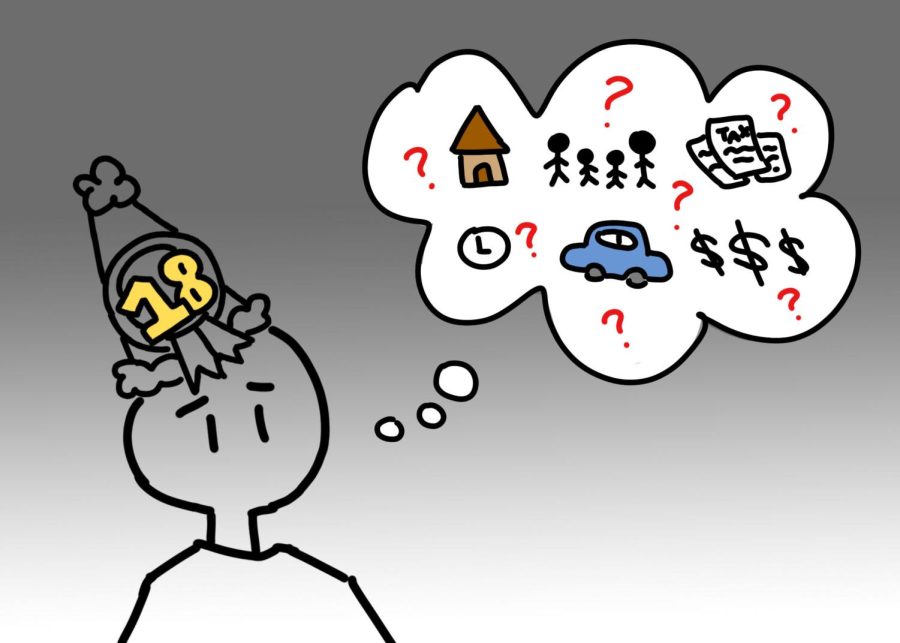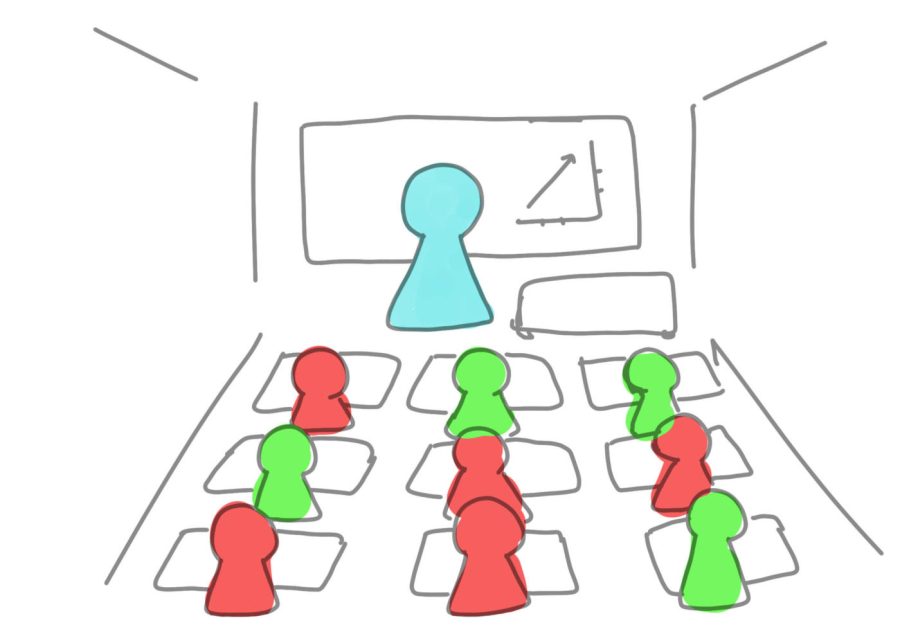How society shapes the lives of females
Societal expectations are hard to face no matter the gender, but as a teenage girl, people fail to realize how difficult it can truly be. People begin to overplay the women’s part in this world, whether it be cleaning the house or making dinner, or finding a way to overcome the assumed feminine role without having to show that women are strong. At this point in civilization, females shouldn’t have to prove themselves to society, but centuries worth of ideals revolving around their roles aren’t easily watered down with time. The teenage girls of this generation still face those same struggles, but are sticking together to break through female social standards. Girls of different cultural backgrounds, sexualities, sizes, and religions come together as one and redefine what it means to grow up in this world as a girl.
Body Issues
Slim waist, perfect hips, clear skin – these are the qualities of the unrealistic yet, idealized body type of today. Being a girl in society and repeatedly being told “you should eat more or you won’t find a husband” or “you should cut down on sweets,” it can be hard to find confidence. These are some of the reasons why junior Aster Damtew struggled with her mental health and body positivity.
“I think being a girl in this society is genuinely really hard since a lot of girls deal with not loving themselves and wanting to be somebody else,” Damtew said. “And I think it’s hard for them to realize they are beautiful just the way they are. I struggled with mental health and body positivity my whole life and I used to compare myself to others which made it even worse.”
Constantly comparing herself to the idealized image, Damtew found herself struggling with body positivity and felt as though she was not good enough due to her body type.
“Why I had such a hard time with body positivity was because of all of the other girls that are completely different from me,” Damtew said. “This made me constantly think I am not as beautiful as them but I think it was a sign for me this whole time to continue to remind myself that I am beautiful and I want people to know that even if we see all these models out here looking beautiful skinny flawless skin our imperfections are our perfections.”
Being a plus-size teen can quickly feel like walking through a hallway set with traps. When girls finally get the confidence and self-love to show themselves off on social media, they can get hundreds of backhanded compliments such as “I love your confidence,” from their friends, family, and peers.
“I know I’m not the only one who goes through this, but at the same time for you me and my girls who are beautiful thick amazing young woman, it’s so hard for us to be positive because we want to be like the other girls but people think that our lives are different because of what we look like,” Damtew said. “It was so hard for me especially because I am thick and have a different skin color but when I grow up I want to change the way people see me because all girls need to feel appreciated and normal instead of being made fun of.”
With social media constantly showing stereotypical body types it can be hard for many to have self-confidence.
“I think it’s really hard for teenagers since we attach social media in our everyday lives,” Damtew said. “ As a girl I feel like we want to be just like the models and we focus on not loving ourselves and social media can be toxic because of our mindset and our negative thoughts.”
Although social media can be a problem for many, Damtew pushed through her personal struggles and reminded herself that through the act of loving yourself many can become successful in their own way.
“I remind myself of how all of the actors and models made it and it’s because they were truly themselves and they pushed through the struggles even though sometimes it can be hard,” Damtew said. “At the end of the day they know that if they were a different person they would never be where they are today and I feel like people need to learn to love themselves and represent who they really are and be proud of it.”
On the other hand, girls who are underweight face struggles too. From everyone thinking they struggle with eating disorders to the “you need to gain weight” comments from family at Thanksgiving, it can seem like no matter what a girl does about her weight, it’s wrong.
“Being underweight, I get a lot of people calling me a junkie and saying that I’m bulimic. Just little remarks,” freshman Makenna Muldowney said. “This one girl said to me ‘is it time for you to throw up now?’ and she was referring to me being bulimic.”
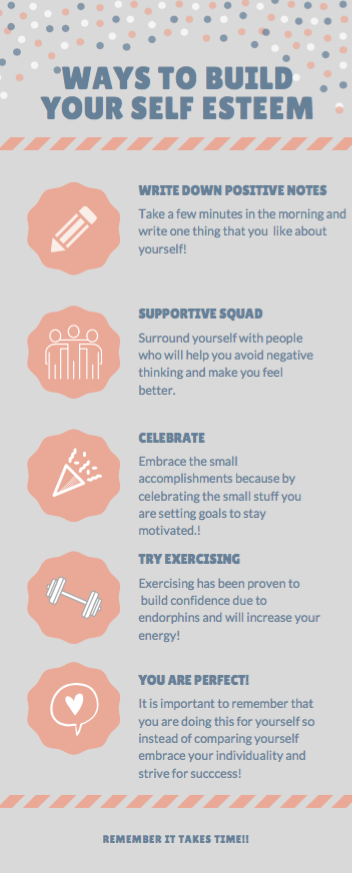
Muldowney, like many others, struggles with her self-confidence due to the fact that she is underweight and has fast metabolism. She is judged for being skinny, even though it’s harder for her to gain weight, as she struggles with low iron and a very fast metabolism.
“It’s really hard for me to eat a lot because it feels like my stomach is literally going to explode,” Muldowney said. “I would much rather have more muscle on me so that it regulates better but it’s caused a ton of pain for me.”
Being underweight tends to be overlooked, which results in many feeling invalidated for being self-conscious. Many people focus more on the plus-size struggle, and while that’s valid, they fail to see the struggles on the other side of the spectrum.
“I feel like people see it [being underweight] as an advantage from the outside,” Muldowney said. “They are like ‘You are so skinny,’ ‘you are so pretty’, but they don’t see the health issues that I have and the terrible feelings I get when I eat too much. We all have our own problems but it seems like people can be more understanding towards everything and everyone. Just because I am not overweight doesn’t mean that I don’t have weight issues.”
With the struggles of being a girl and added on societal pressure through social media and peers, many forget to realize the differences that set people apart is what makes them unique.
“If you want to wear some baggy pants, shirts, who cares? If you want to wear tight clothes, who cares?” Muldowney said. “Let people say what they are going to say because they’re not you. As long as you can love yourself, that’s all that matters because you are born alone and you die alone. The sooner you can figure out to love yourself and understand yourself the better.”
Religion
With different religious beliefs, traditions, and values, it can be hard to fit into the American society where the majority of citizens are Christians. As if that’s not already hard enough, girls that are part of religious minorities must break through stereotypes associated with it and their gender. Sophomores Maha Chaudhry and Isabella Villarosa have overcome the constant assumptions revolving around being young and strongly religious girls.
“A lot of people misunderstand [being Muslim] for a big, terrorist, harmful religion, and it’s just sad how the media portrays Islam,” Chaudhry said. “[People] don’t really know anything about it because of what happened on 9/11. It’s really sad what happened. They just associate it with Muslims, which is completely off. The religion itself is about forgiveness and bringing people together no matter what race or gender they are. It’s all about respect and bringing everyone together, and having a peaceful [and] humble community.”
Being Islamic isn’t the only religion that struggles in society today. Not only must girls stay strong like Maha Chaudry, but they must also stay strong when it comes to being true to their religion, such as sophomore Isabella Villarosa.
“I was raised an Apostolic Pentecostal Christian by my family, but as I grow older my faith is still as strong as it has been since the beginning,” Villarosa said. “What pushes me to follow my religion is my strong beliefs and faith in God’s word. What is said in the Bible I find to be the truth and after seeing so many miracles performed by Him, my faith and belief in Him only grows.”
Sometimes being in certain religions affects a girl’s response to being in certain situations. Girls must act a specific way, dress a specific way, and refrain from specific activities just because of their gender and for Chaudry, this is a constant problem because being a victim of religious discrimination makes it much more difficult to make it through the day.
“I’ve been called a terrorist. I’ve been given dirty looks. I’ve been yelled at,” Chaudhry said. “All those times I didn’t care. People moved away from me because of my skin and hair color. I guess that if someone is a darker skin tone then they’re not ‘from here.’ It saddens me you know. The media, people get brainwashed into it, and people don’t know how to educate themselves. They’re staying in their ignorance. So they’ll see someone, they give them the words, the looks, and the stereotypical things. I feel like I’ve experienced more than I should have.”
Despite the lack of respect, consideration, and kindness towards Chaudhry, she’s continued to stay strong through it all. No matter who tries to put her down, Chaudhry rises higher and higher above the effect of words. With the help of a strong base and many influences, she has learned to deflect it.
“It never really phased me,” Chaudhry said. “[Their words] just went into one ear and came out the other. You can’t hate someone for their religion or any differences. It’s just disrespectful. Me and my family, we don’t do that. I wasn’t raised like that. It’s helped me develop the mindset I have now. It’s strong. It can’t really even be penetrated. It’s hard for people to get through me because I can see through them. Islam helped me build that mindset. It’s helped me with self-discipline, self-respect, and situational awareness. I’m super observant, and Islam helped give me an outside view.”
Not only has Chaudhry’s religion helped her stay strong against discrimination, but it’s also taught her core values. From sympathy for those less fortunate to the power of forgiveness, these topics have taught Chaudhry many important lessons and for Villarosa, she experiences more internal challenges, and at first, it wasn’t easy for her to accept.
“I play volleyball and have been playing for around five years,” Villarosa said. “I didn’t face many hardships at first, but as I continue to grow older, holiness is something that concerns me when I play. In volleyball, you wear shorts so you’re able to move and run freely and swiftly. I usually only wear skirts, but in volleyball I wear the shorts since it is part of the dress code. I do feel guilty at times as it is not being very modest to have to wear such clothing, but I only comply due to it being a part of the sport.”
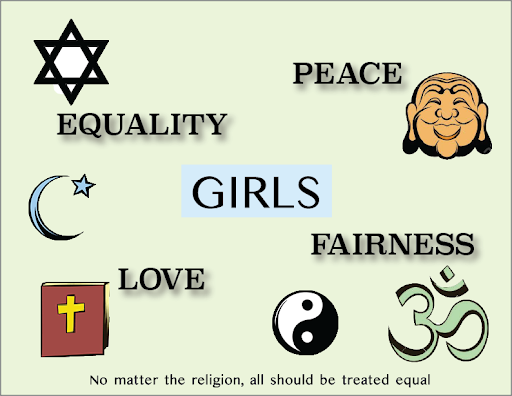
Similar to Villarosa, Chaudhry has rules she has to follow being in her religion.
“There are guidelines, like The Koran, a holy book,” Chaudhry said. “There are Nasheeds and Hadees, which are more [about] wise words. We have all the important words and guidelines to help us go down the right path. The most valuable [guideline] to me is, ‘Every single time you call to God, he will answer. He will always be there. He will always answer. You call out to him. He’ll call out to you even more.’ and ‘No matter how many times you sin, God won’t judge you on your sins, he’ll judge you on your repentance, how much you try and make up for them.’”
As Chaudhry listened and learned each of these lessons, she took another step closer to God. Eventually, she developed a strong relationship with God, and found the light through her dark times.
“He’s actually helped me a [which made me] kind of surprised,” Chaudhry said. “I wasn’t in the best place a few years ago, and [I was in that stage for years]. For the bad times I went through, he helped me by giving me guidance. I put my faith in him. I learned to trust God, and leave the rest to him. Just do what you have to do, and that helped me a lot. I don’t know what happened, but my mindset is dead on. It’s strong. I have a really good mindset and really good mental health.”
Along with a strong connection to God, the religion has taught Chaudhry the true position of women within society. It encourages female empowerment, and because Chaudhry has learned that early on in life, it’s given her confidence and comfort within herself. Similar to many other religions like Chaudhry’s, Villarosa is never alone in her times of embarrassment, sorrow, and anger.
“My community of faith absolutely stands behind me in any time of need as they are there to uplift my spirit with the scripture and the great things to come and look forward to,” Villarosa said. “Worshipping together and [saying] prayers definitely has helped me get through any struggle that I may be facing.”
Although this is just a glimpse into the life of one girl, there are so many others who are a part of religious minorities that go through the process of overcoming the same negative experiences, the same negative thoughts, and the same negative feelings, like Chaudry.
“If the girls now were respected as how Islam says to, we would be on top,” Chaudhry said. “It’s all about respecting women. One of the big rules is that when you marry someone, what’s hers is hers, and what’s his is hers. I value the rule because you see a lot of cases where she can’t go anywhere or do anything. Women should be more respected. Respect should be given.”
Chaudhry and Villarosa, both have experienced difficulties throughout life by just practicing their religions and they have advice for the girls that may be struggling in society because of their religion.
“To other girls who experiencing the same struggles, fight for what you believe, but make sure to hear out and be understanding to the other opinions and beliefs that come your way,” Villarosa said. “It is also better to weigh out the outcomes of things before acting impulsively.”
LGBTQ+
*For privacy reasons as requested by the individuals, some names have been changed.
For years, women of different sexualities have tried their best to have their voices heard in a world that is not accepting of their way of life. Although things have certainly improved, many women of the LGTBQ+ community still face discrimination, such as freshman Brooke Pettyjohn.
“I’m bisexual so it means that I like boys and girls and people in-between. It’s just the attraction to both genders or people of no gender. If you ever bring up anything about your sexuality someone is bound to attack you,” Pettyjohn said. “It’s happened to me a lot of times because I have a TikTok account and I have some followers so people invalidate you and say relationships should be between a man and a woman.”
This sentiment is also shared by Morgan Miller* who feels that in addition to her race, she is discriminated against for being pansexual.
“My sexuality is pansexual and people often get it confused with bisexual. While bisexuals love two or more genders, pansexuals don’t have any gender preference at all, almost like we’re ‘gender-blind’,” Miller said. “Being queer in itself is a challenge in this world. Being a black person in our society is hard enough and being a female is terrifying in some places in this society as well. Now put it all together and you have some hard struggles that I have dealt with and will have to deal with even more in the future.”
Unfortunately, homophobic acts tend to be committed over harmless things such as an display of affection shown by Paige Smith* who identifies as a lesbian.
“My sexuality is a lesbian, a woman who also likes women. I have faced so much [discrimination] to the point where half of it doesn’t affect me anymore. Like for example, I almost got into a fight just because I was holding a girl’s hand in public. Also, the amount of threats I get when I play
games, I have gotten all of them; the rape, death and doxing. It affects my life a lot. I’ve lost relationships with my family and friends. Sometimes I wish I were straight,” Smith said.
Although, it may seem like the mistreatment of LGTBTQ+ women mainly stems from older generations with different values, these days the mistreatment begins as early as middle school.
“Homophobic slurs were used commonly in middle school towards me and my friends, even before I knew I was pansexual. The constant things my own family says about them just convince me even more not to come out to my family, since I know they would never understand nor accept me. I guess that over time you just get used to it and it doesn’t bother you anymore. At least for me it doesn’t,” Miller said.
Being a woman, many female members of the LGBTQ+ community are judged for their gender such as Pettyjohn, who has experienced sexism and harassment. Sadly, it is a cold reality that almost all women encounter some form of violence against them in their life.
“I was walking down the street with my friend and these boys were in a truck and they started whistling at us and of course we were terrified. They looked like they were 18-19 and we were 13 so we just went back home. We were scared that something was going to happen because they were trailing us for a while,” Pettyjohn said.
Although, it may seem like these misogynistic actions are a rare occurrence, this is actually something that happens frequently to all women.
“It happens a lot whether you are on the street or wherever,” Pettyjohn said. “You are getting judged by what you wear, what your hair color is, your ethnicity, so it’s hard for females, in general, to walk down the street without being catcalled or harassed.”
The remarks that women receive aren’t something they can escape from. These days women experience hardships even online while simply playing online games.
“Being a girl in the video game industry is very scary because of the community (mostly men),” Smith said. “I had to quit games like Valorant, Overwatch and CounterStrike simply because of the threats I was getting. It is not fun.”
However, as tough as it may be, Pettyjohn refuses to be a victim and works hard for the opportunities she is given.
“I think that is something I’ve gained completely on my own. If I get an opportunity it’s because of my hard work and abilities. Not because of my gender or sexuality,” Pettyjohn said.
Miller feels the same and although she has gone through a lot, she wouldn’t trade her identity for the world.
“It’s taught me so much about the world I live in and it’s brought me so many great friends and much more. My life isn’t perfect, but if it was that would get boring really quick. I don’t enjoy downhills in my life, but I know they just prepare me for future rewards and amazing moments,” Miller said.
As the society continues to change and more people are speaking out, Pettyjohn has one dream she wishes to see in her lifetime.
“It would definitely be equality for all, for whatever you are. You are just judged by your abilities as a person, not because of your gender, race, ethnicity, etc,” Pettyjohn said. “Also, not having constant bullying of someone who is different from you.”
Until things change, however, Pettyjohn believes women and LGTBQ+ citizens should stick together and support each other.
“I understand what other people are going through who also get harassed for things other than being a woman or a part of the LGBT community such as race,” Pettyjohn said. “I think it’s communities, girls supporting girls, LGBT supporting LGBT, that is important right now and has an effect.”
With all of the struggles and hardships girls face it can be hard to keep persevering but it is important to stay optimistic and seek out the light at the end of the tunnel.
“Try not to take things to heart too much,” Pettyjohn said. “I think everyone gets those types of comments regardless of who they are, their whole life so try to look on the positive side and ignore those people.”
Smith offers a similar piece of advice and feels that ignoring harassers is the best thing to do.
“When someone tries to argue with you don’t, it’s not worth it,” Pettyjohn said.
Miller on the other hand advises others to take control of their life and do what they need to do to achieve happiness and find a place to be safe.
“Life is like and endless roller coaster where there are just bunches of ups, downs, twists and turns, and of course going backward and forward. I haven’t figured it out yet but all I can say is that, if you really want your life to get better, then go ahead and make it better,” Miller said. “Maybe there’s not much you can do, but try doing something that makes you happy. It’s hard to always keep your head up in the rain, but find someone to be that umbrella. find a safe haven. Just don’t ever give up the hope that you can be happy, because everyone deserves happiness.”
At the end of the day…
Although we live in modern times, the stigma around girls has only grown and morphed according to today. It is important to acknowledge the fact that everyone should be appreciated and treated fairly no matter their gender, skin color, body image, religion and sexuality. No matter how easy women make it seem, being a girl is hard, regardless of the type of struggles they go through.
Quarantine has given space and time for girls, especially, to think about who they are as a person and who they truly want to be. Through the lockdown, many were able to block out negativity and unnecessary comments and work on themselves to be a better person through strength and diligence. Supporting each other and helping each other through these difficult times is what will help overcome these systemic disadvantages and push girls to stand up for themselves.
As a final reminder of what women can achieve, regardless of what makes theme unique and different, here are some historical female figures that represent the strength and courage which every girl no matter the race or culture, deserves. They rebelled against the stereotypic ideation of women and continue to inspire the younger generation today to succeed and prosper.

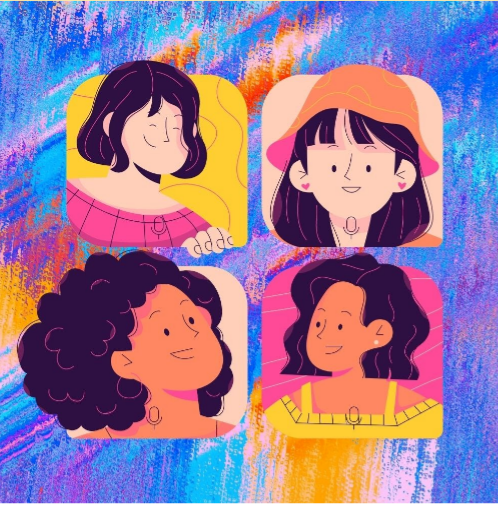

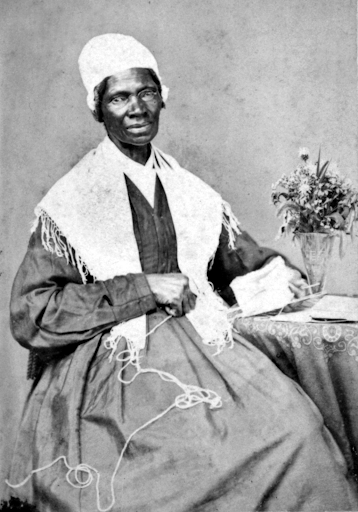

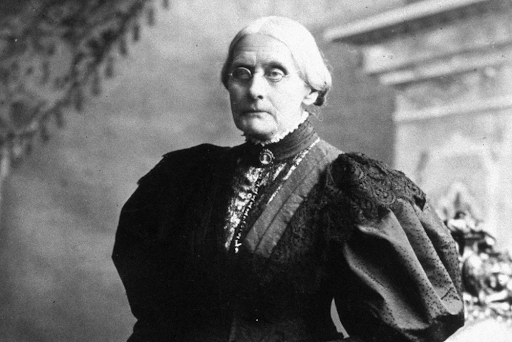
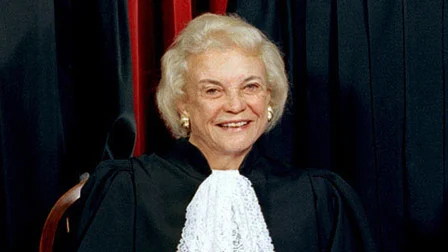
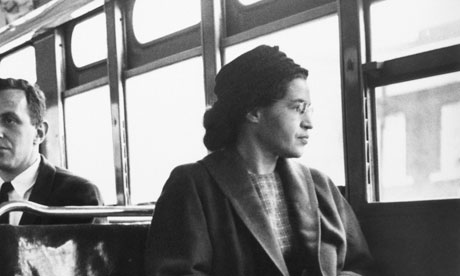
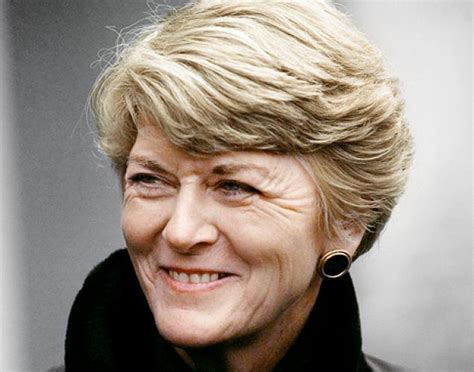
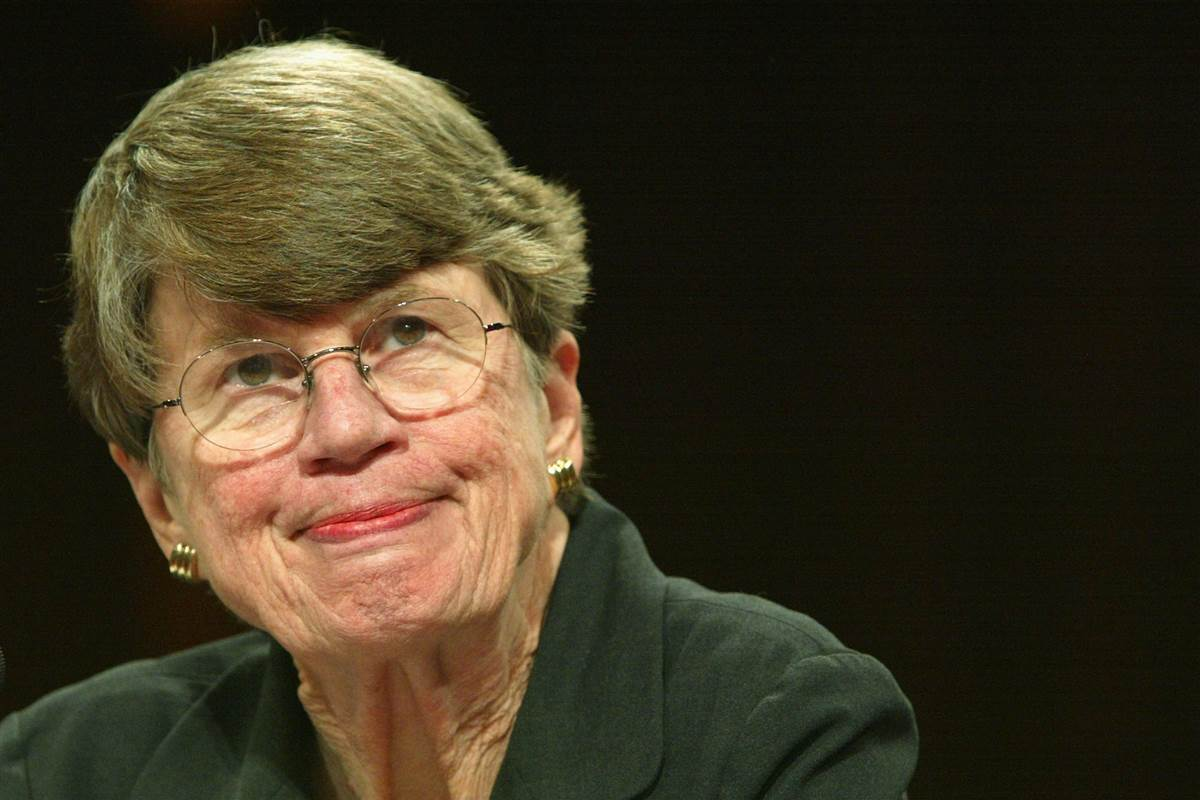
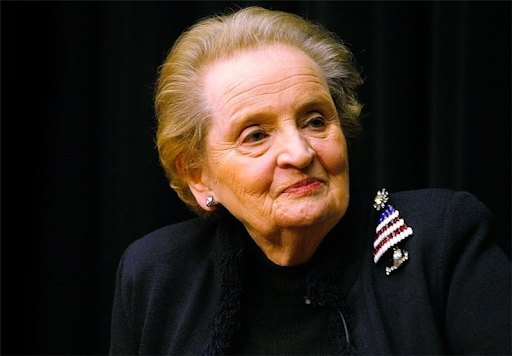

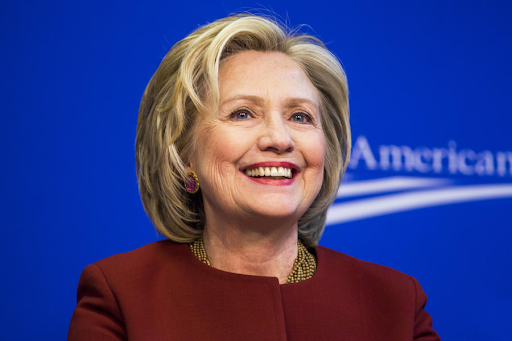
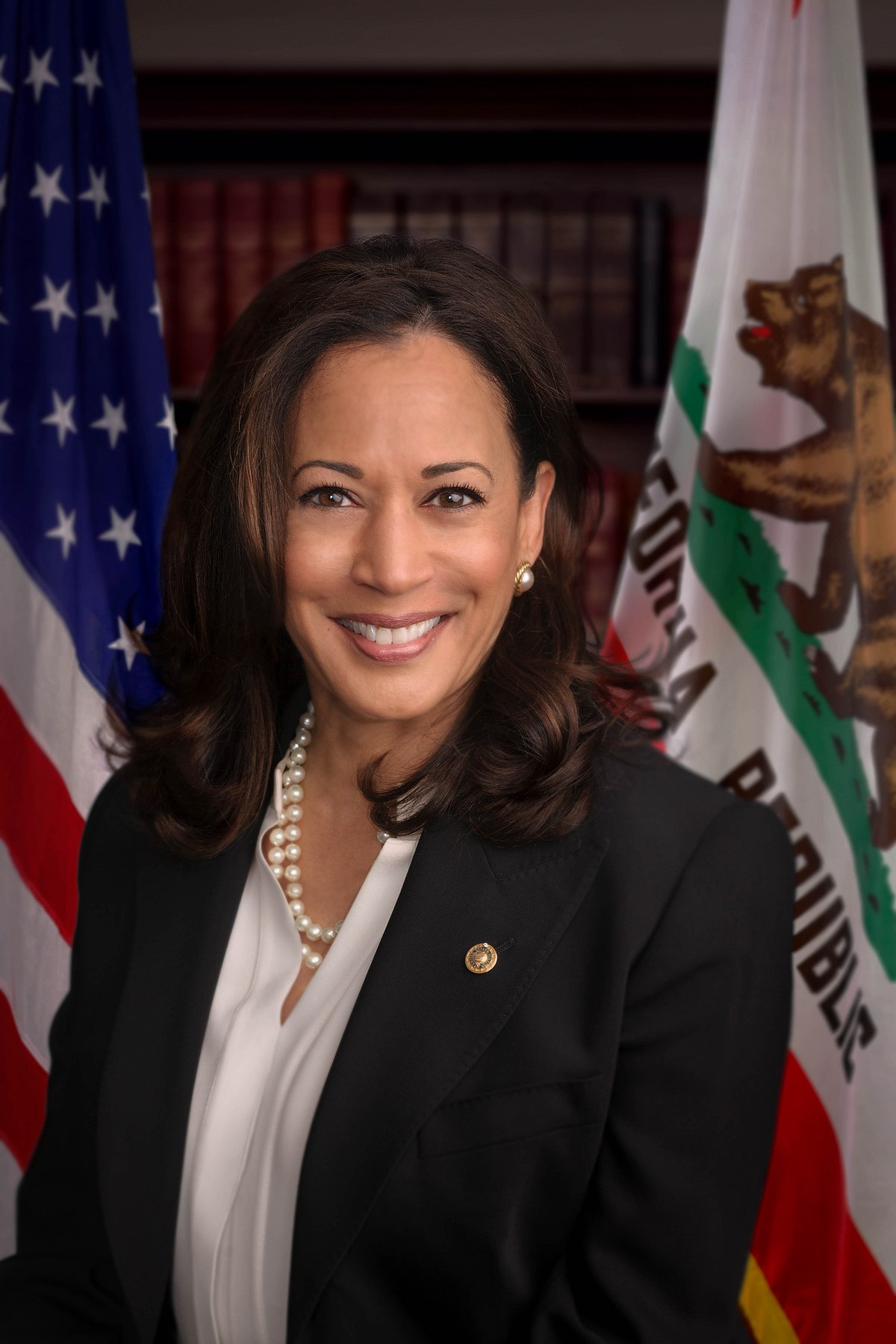
![Working in the Student Success Office, Attendance Secretary Lordis Depiazza inputs a student’s absence excuse note. Students are required to bring an excuse note to the attendance office within three days of any absence. “Reminding students that being in school is important because it reflects towards your grades and being able to do any activities with the school,” Depiazza said. “[It] seems to get the students' attention about wanting to be in school.”](https://southwestshadow.com/wp-content/uploads/2025/10/IMG_8313-1200x800.jpg)

![Squaring up to a practice dummy, sophomore Cypher Andres prepares to throw a punch. Dummies are regularly used to help him prepare certain hits to take his opponents down. “[Boxing dummies help me practice] because it’s basically a model of the body,” Andres said. “It helps with accuracy, such as pressure points behind the ear, and a clean liver shot can end the fight.”](https://southwestshadow.com/wp-content/uploads/2025/10/IMG_5728-e1759850486200-1200x864.jpg)
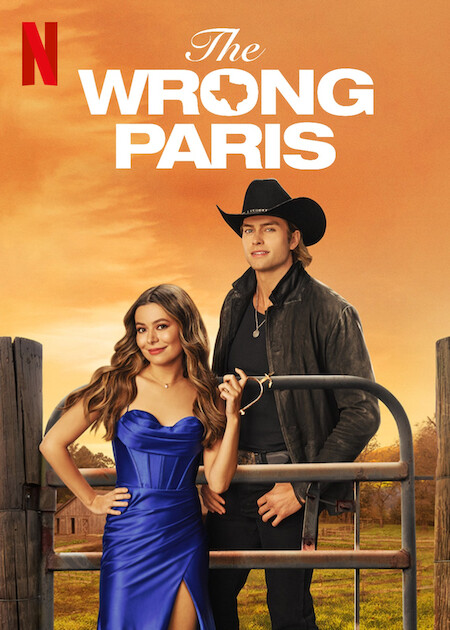
![Arranging the fabric on the floor for a new project, senior Sapphyre-Ann Leung plans out her attire for the next deadline. With the recent closures, students now had limited resources and less margin for error with the fabric and materials they had in stock while trying to reach strict deadlines. “Joann’s had a lot of high-end fabric for our fashion competitions,” Leung said. “We couldn’t just buy ten yards of fabric from Hobby Lobby or Walmart. Since [Joann Fabrics] is no longer open, we have to buy items online, which is way more expensive.”](https://southwestshadow.com/wp-content/uploads/2025/10/IMG_0038-1200x800.jpg)
